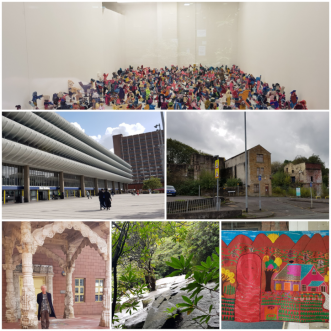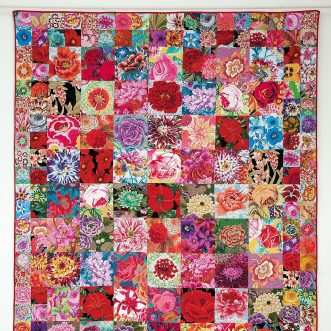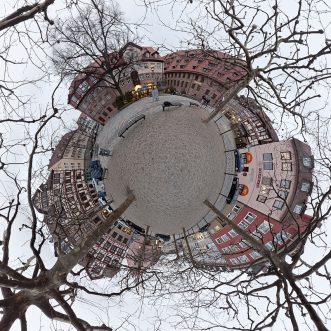
Attitudes to customers
I experienced two very different attitudes to customers yesterday. The first was from the people who built my kitchen cabinets … Read More “Attitudes to customers”

I experienced two very different attitudes to customers yesterday. The first was from the people who built my kitchen cabinets … Read More “Attitudes to customers”

I don’t know about you, but that phrase “Standard Operating Procedures” makes me cringe. I completely get why they are needed in certain contexts – manufacturing, engineering, military, – anything where you’re dealing with things, or beings that you treat as things.
But as soon as human beings become part of the equation, there can be no such thing as standard – from either side of the operation.
If you’re a business that focuses on delivering a service to humans, by humans, consistency is what you want, not the uniformity of standardisation. However your service is being delivered, and whoever is delivering it, it should feel consistent with your Promise of Value. Since humans are involved, that inevitably means variation – of the kind that standardisation stifles. The kind that allows your people to over-deliver on your Promise and delight individual clients – even when things go wrong.
So, as you design and document the services that enable your business to deliver though others, remember to empower that ability to vary in your team.
Not only will it make for more delight and flexibility, it will be the means by which you discover new needs and desires in your client base.
In manufacturing and engineering, variation is deviation. But for humans and other living beings, and the businesses that serve them, it truly is the spice of life.
Discipline makes Daring possible.

The north is another country.
They do things differently there.
A week of walking, looking and being made to think.
Just what the doctor ordered.
And now I’m back.
Did you miss me?

“All for ourselves, and nothing for other people, seems, in every age of the world, to have been the vile maxim of the masters of mankind.” Adam Smith 1776
Smith thought the ‘invisible hand’ of the market would prevent this in the future.
He was wrong.
Perhaps its time to re-embrace the idea of ‘the commons’?
A resource, owned by no-one, managed by a rolling team to ensure its benefits can be enjoyed by everyone, including non-human communities, present and future.
What if you made your business a commons?
A resource, owned by employees (including you), managed by those employees for the benefit of present and future customers and employees?
It’s not as hard as you might think. And once you’ve commoned your business who knows where you might go commoning next?
Discipline makes Daring possible.

Tomorrow, my friend and instigator of Connect the Carbon Dots, Anna Cosentino will be presenting our tool as part of the Carbon Newbie Summit in New York – part of New York Climate Week.
As well as contributors to the Carbon Almanac like Anna, there will be speakers and panelists from:
The whole summit will be live-streamed from 9:30am ET (2:30pm BST), and you can follow along on the platform formerly known as Twitter.
Or use the same link to access the recording to watch at your leisure.
If you don’t know much about the climate crisis, or you’re worried that all the effort you’ve put into reducing your personal carbon footprint might just have been a con to keep things as they are, this summit and our tool will help you find more ways to make a positive impact.
Enjoy!

“Good design is as little design as possible”. Dieter Rams.
The point is not just to keep it simple, but to keep it radically simple for the user.
That takes radical empathy.
And that means radical focus.
It took me 6 months to work out how to get back to the home screen on my ipad. Not because I’m stupid, but because I’d grown up with Microsoft, and it wasn’t designed for me.
You can’t do radical empathy for everyone.
So…
Save it for the people who really, really need what you can do for them.
Then blow their minds with how easy it is to buy and use.
Discpline makes Daring possible

I’m slowly working my way through “Braiding Sweetgrass” by Robin Wall Kimmerer. Enjoying a story or two before I go to sleep is a great way to unwind and bring myself back to my proper place in the world.
Two things stood out from last night’s reading:
The Haudenosaunee Thanksgiving Address, or ‘the words that come before all else’, the words that begin every meeting, every negotiation, every celebration. Here’s a video of it, recorded for Earth Day.
and
“In a consumer society, contentment is a radical proposition.”
What would happen if I read that Address at the start of every day?
What would happen if we all did? Whenever we gather?
Something good I think.
Which makes it well worth sharing.

Today’s recommendation is to read ‘Humanocracy‘ by Gary Hamel and Michele Zanini; to follow them on LinkedIn, and to subscribe to their YouTube channel, ‘The New Human Movement‘
Yes, they are talking about big organisations.
They are also in many cases old organisations, who have lasted this long often at the top of their industry.
They are also in many cases big, old organisations who have managed to survive by changing how they run themselves.
What they all have in common is that they view the business as a great big collaboration of talented people, rather than a machine.
How big could your business get if you looked at it this way? How long could it last?
You have an enormous advantage over these organisations – you haven’t gone corporate yet, so you don’t have to undo that first.
Take it.
“This is what is possible when you treat human beings like they are actually human beings”. John Ferriola.
Discipline makes Daring possible.

One of the ways those who benefit most from the status quo try to put us off doing anything effective about the climate crisis is by telling us that our lives will be poorer as a result.
The truth is our lives will be different. In the same way that my life now is different from that of my parents, and even more different from their parents before them.
Here’s my counter argument:
Humans beings are extremely creative. We can find enjoyment, art and pleasure in the most unpromising of surroundings and the most minimal accoutrements. We will invent (are inventing) new ways of doing the things we enjoy.
We already have lots of things to play with. Things we’ve already made, that can be passed around, recycled, and repurposed in so many ways. People are still listening to radios their grandparents and great-grandparents listened to. We will find (are finding) ways to keep them from polluting our environment any further.
We can grow and make lots more things. They may not be the same things we grew before, and we will have to make them in different ways, that don’t damage our chances of survival on the planet, but we are extremely creative we will find (are finding) multiple ways.
We’re being offered a form of minimalism. We don’t have to accept it.
Which is why my recommendation for today is to take a look at Kaffe Fassett to see just how wonderful more can be.
The ability to enrich our lives doesn’t depend on money.
It depends on how we look at things.
A bit of Discplined looking can make Daring possible.

Today, I’m recommending Jason Fried’s blog.
As I’m sure you know, Jason wrote “It doesn’t have to be crazy at work“, a book well worth reading if you haven’t already.
Jason writes from the perspective of a business that is ‘big enough’, doesn’t need to be bigger, and is primarily a vehicle for improving the lives of its customers and employees.
Nowadays that’s quite the radical view, and it gives him a very different perspective on all the things businesses do, or are told they should do which is really refreshing and always makes me think.
If you’d like an even more radical perspective on what business could be, I also recommend Ari’s Top 5 by Ari Weinzweig, co-founder of the Zingerman’s Community of Businesses.
And if you’d like to create your own, more rounded perspective on business and it’s place in the world, I recommend the Wolf Tool from Bev Costoya.
Discipline makes Daring possible.